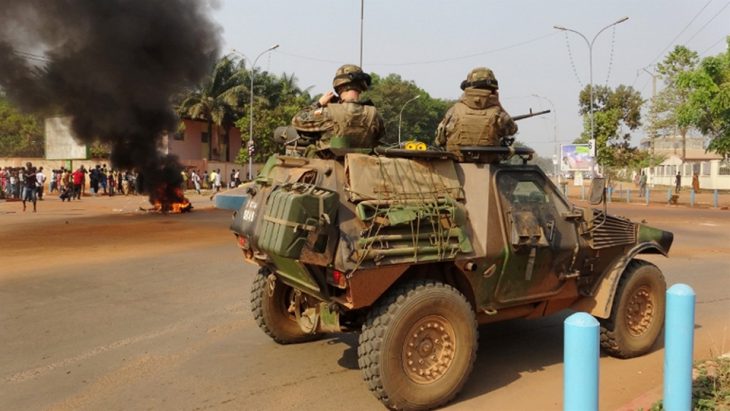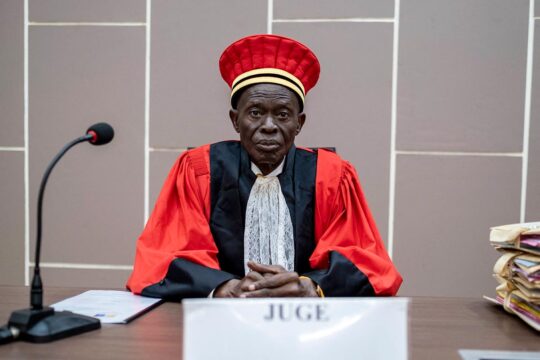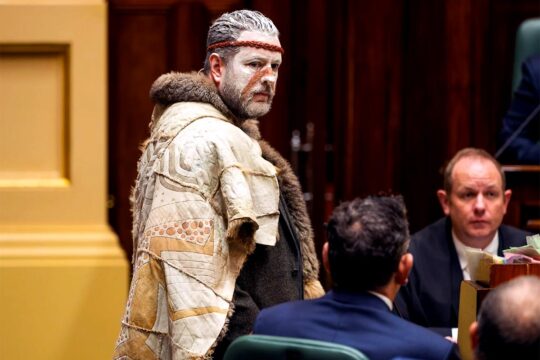The Central African Republic, which has had no less than three presidents since 2013, says it wants to emerge from a long and bloody transition by holding legitimate elections. Although already twice postponed, a new elections calendar was published on June 19. The calendar provides for a voter census from June 27 to July 27, followed by a constitutional referendum on October 4 and a presidential and legislative election process from October 18 to November 22.
But this calendar looks like an over-ambitious marathon in a country wracked by civil conflict, propped up by the international community, where some regions are still under the control of armed rebel groups. The rainy season should also not be forgotten, since it is likely to complicate things both for voters and the officers of the electoral commission. Many Central Africans think this calendar is unrealistic and imposed by France, whose voice is being less and less listened to in its former colonies such as the CAR.
In an interview less than a week before the publication of the new electoral calendar Auguste Boukanga, president of the Union for Renaissance and Development (URD), told Radio Ndeke Luka that the interim government is “putting the cart before the horse”. “Before even carrying out a voter census, identifying places for election bureaux and deciding the electoral map, they are hurrying to have a referendum in October, the first round of presidential and legislative elections also in October and the second round in November,” he said.
The URD president said he thinks the calendar has been imposed from outside. At the Bangui Forum from May 4 to 11, he reminds us, “the URD proposed a framework for elections to take place in the dry season, between November 15, 2015 and May 15, 2016, so that Central Africans can participate massively. The rainy season is not good for elections in the CAR. Things are happening as if it’s a foreign demand and not an initiative coming from Central Africans.”
“No to France!”
The Bangui Forum called for polls to be postponed until conditions were right, but former colonial power France said during President Catherine Samba-Panza’s visit to Paris on May 27 that it would like to see elections before the end of the year. France, whose army is already engaged in a costly anti-terrorism operation in the Sahel (operation Barkhane), would no doubt like to cut the number of its troops in the Sangaris force in the CAR as quickly as possible. According to observers, France is not drawing any political gain from its costly support to Bangui.
On June 16, three days before the electoral calendar was published, President Samba-Panza told Radio France Internationale: “I do not want the transition to be extended again. We already prolonged it once from February 15 and then again from August. This time the transition authorities really want that elections can be held before the end of 2015. (…) We want to end the transition at the end of the year.”
However, on June 26, as the voter census was due to start in Bangui, things turned sour in the Third Arrondissement of the city, reported Radio Ndeke Luka. Bands of youth came out chanting slogans against France, in the presence of French ambassador Charles Malinas. “No to France!” they shouted. “Why is it always France? Our houses are destroyed because of the French. These elections are Central African. They must be organized by Central Africans. ” The United Nations force in the CAR invited the French ambassador and Central African officials who were greeting him to leave.
Disarming the militia
As well as a perception that things are being run by France, there is also a lack of financial and logistical means and above all persistent insecurity in several parts of the country.
“We still need a lot more money,” Samba-Panza told RFI on June 16. “In the Basket Fund where the partners are putting money – the European Union, United Nations, France, the United States – we have not even got half of the 43 million dollars we need. We’re at only 48% and we need another 18 million dollars. I was in Brussels to lobby for funds. I got a good response with regard to humanitarian and development aid, but not so good for the elections. That’s why I will continue lobbying.”
One hopeful sign on the financial front is a decision by the assembly of the Kimberley process – the organization that regulates the diamond trade – to partially lift the embargo imposed on the CAR two years ago. Diamonds from the “green zone” in the west of the country can now be exported, which could bring tax revenue to the State.
Holding free and fair elections is also likely to be depend on whether the militias are disarmed. This will also require considerable funds. Catherine Samba-Panza, who cannot run for the elections, says it is not her ambition to oversee completion of the Disarmament, Demobilization and Reintegration Programme (DDR), but she would like at least to see completion of a preliminary phase, estimated to cost 8 million US dollars. “We are indeed fighting to meet these two challenges, first steps toward DDR and elections. We have hope, and we will get there,” she says, even if many of her fellow citizens do not share her optimism or agree with her choices.






